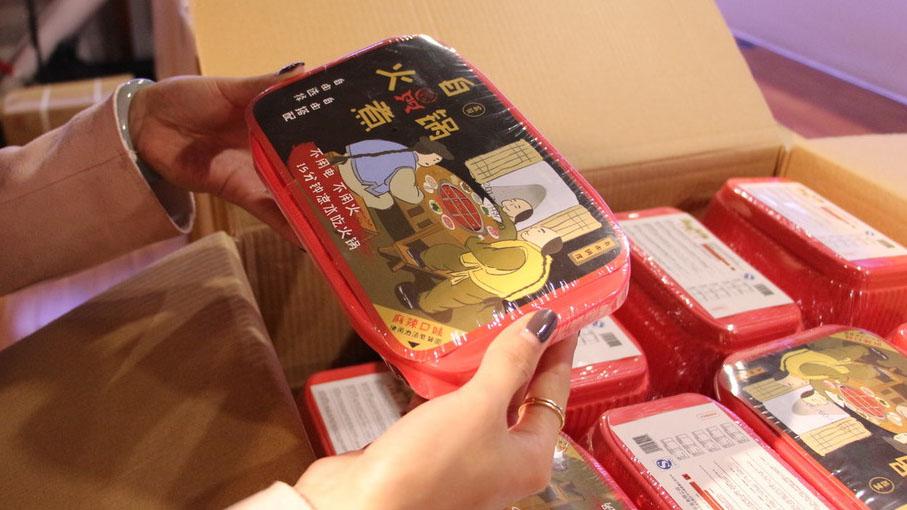Officials in southern China's Guangxi Zhuang Autonomous Region have banned self-heating instant meals from high-speed trains, due to potential safety risks, which include setting off on-board smoke alarms. The ban follows others in Fujian and Sichuan Provinces.
Self-heating food is popular among long-distance passengers as it is convenient to carry and Chinese people prefer to eat hot meals.
The principle of self-heating instant food is a chemical reaction between water and a heating pack, which is composed of quicklime and aluminum powder. The pack is heated immediately within three to five seconds. The temperature of the pack is as high as 150 C, and the steam temperature is as high as 200 C.
This can easily cause burns to users, according to a report by news portal Southcn.com. If the the pack breaks, it may eject high-temperature liquid, and even result in a small explosion.
In December 2017, a resident in Shanghai surnamed Fang suffered permanent damage to his right eye after a self-heating hot pot exploded, splashing hot soup into his face.
It is necessary to ban self-heating meals on trains, because the high-speed train is a fully enclosed environment with people packed in, and the consequences of a fire or explosion are unimaginable, as if a smoke alarm is triggered, the automatic brakes will slam on, the report said.
There are no standards on defining what ingredients can be used to produce instant self-heating food. The catalog of food production licenses, issued by the China Food and Drug Administration in 2016, stipulates that convenience foods include instant noodles, rice and porridge. Instant self-heating hot pots and other types of meals are not listed. The lack of standards has led to lower entry barriers in the industry, combined with high profits, sometimes up to 100 percent. Many private investors are flocking to get a piece of the action, and there are hundreds of brands in the market.
In addition, many speculators use low-cost materials to make the heating agent to boost profits, which further aggravates the potential safety hazards.

 Old Version
Old Version